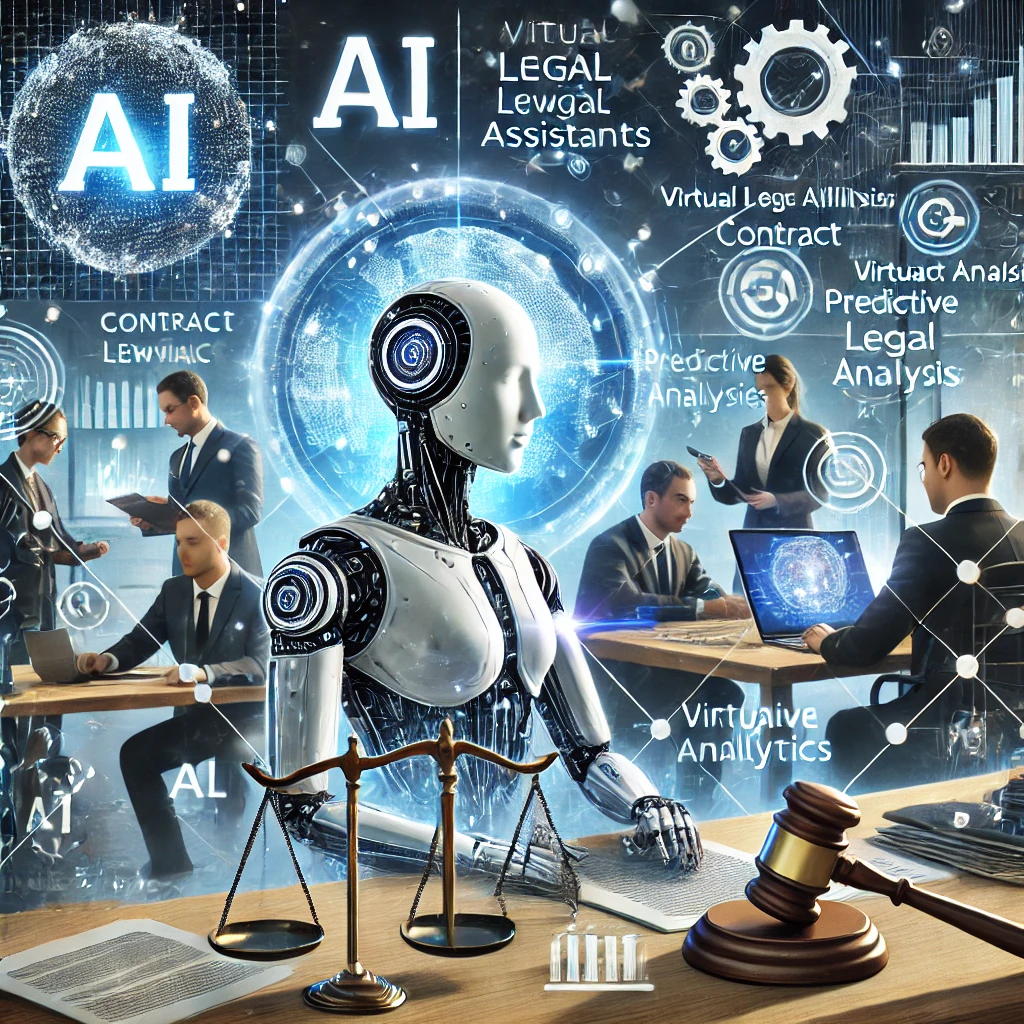AI is meant to automate a number of tasks that take up precious working hours lawyers could be devoting to tasks that require discerning, empathy, and trust- qualities that cannot be replicated by even the most sophisticated form of AI. The legal profession is one of the oldest professions in the world.
How AI is Transforming Legal Work
Artificial Intelligence (AI) is revolutionizing the legal industry by automating repetitive tasks, enhancing legal research, improving contract analysis, and increasing efficiency in law firms and corporate legal departments. Here are key ways AI is making a difference:
1. Automated Legal Research & Case Analysis
- AI-powered tools like Casetext, Westlaw Edge, and ROSS Intelligence use natural language processing (NLP) to quickly find relevant case laws, statutes, and precedents.
- Reduces research time from hours to minutes, improving accuracy and efficiency.
2. Contract Review & Drafting
- AI can analyze contracts, identify risks, and suggest modifications.
- Platforms like Kira Systems and LawGeex help lawyers review contracts faster and with fewer errors.
3. Legal Chatbots & Virtual Assistants
- AI-driven chatbots like DoNotPay assist users in drafting legal documents, disputing parking tickets, or filing claims.
- Law firms use AI chatbots to provide 24/7 client support, saving time and costs.
4. Predictive Analytics for Case Outcomes
- AI tools assess previous case data, judge rulings, and legal arguments to predict case outcomes.
- Helps lawyers make informed decisions on whether to settle or proceed to court.
5. E-Discovery & Document Automation
- AI scans large volumes of legal documents to find relevant information for litigation.
- Saves time and costs in the discovery process.
6. Compliance & Regulatory Monitoring
- AI helps businesses stay updated with changing regulations (e.g., GDPR, financial laws).
- Identifies compliance risks before they become legal issues.
7. AI in Intellectual Property (IP) Law
- AI streamlines patent searches and trademark registrations.
- Helps detect copyright infringement and plagiarism.
Conclusion
AI is not replacing lawyers, but it is augmenting their work by automating time-consuming tasks, reducing costs, increasing accuracy, and allowing legal professionals to focus on higher-value work. The legal field is becoming more efficient, data-driven, and client-friendly thanks to AI.
Would you like a visual representation of this transformation? 🚀

